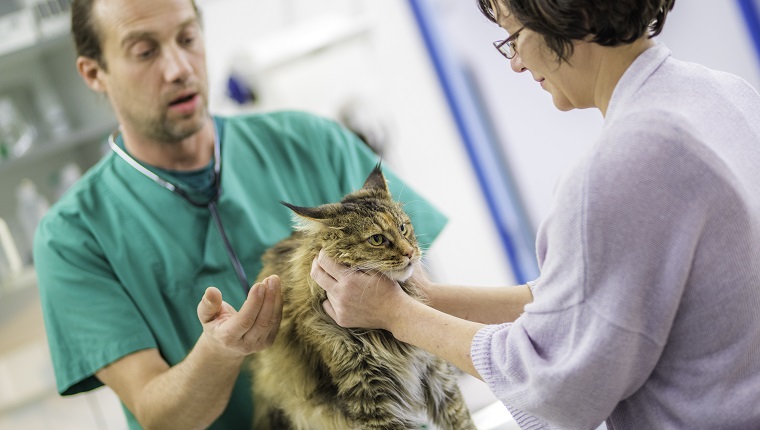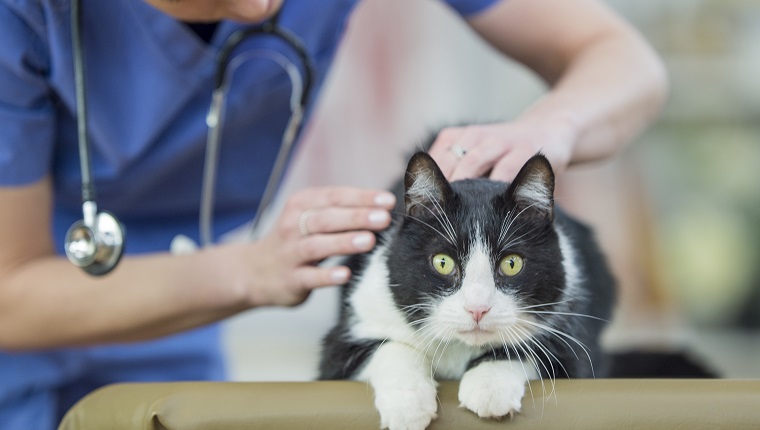Rectoanal polyps in cats is a condition that involves non-typical, flap-like growths inside the rectal and anal walls. These growths are often benign, but some cats can be afflicted with multiple polyps.
The condition can cause trouble for cats when it comes to defecating, with some cases causing blood to appear in the affected cat’s stools. Rectoanal polyps need veterinary intervention; they will not disappear on their own.
If you see signs that your cat might be suffering from these polyps, then you must consult your veterinarian for a proper diagnosis and course of treatment. Here’s what you should know about the symptoms, causes, and treatments of rectoanal polyps in cats.
Symptoms Of Rectoanal Polyps In Cats
Rectoanal polyps produce symptoms that affect the way a cat defecates. Some of the most common symptoms include:
- Straining to poop like they’re constipated
- Blood present in stools
- Diarrhea
- Mucus present in stools
- Audible meowing while pooping
Causes Of Rectoanal Polyps In Cats

The cause of rectoanal polyps in cats has never been definitively determined.
However, while these polyps do not seem more likely to affect specific breeds of cats or specific genders of cats, the condition can affect senior cats more frequently.
Treatments For Rectoanal Polyps In Cats
If you start to think that your cat might be developing rectoanal polyps, your veterinarian will want to conduct a full physical examination. This will include blood and urine tests. Your vet will also carry out a rectal examination to confirm whether they can see any polyps.
If your vet confirms the presence of polyps, they’ll want to conduct a colonoscopy. This procedure uses a small camera that can look for any other polyps that might be present. The vet can also order pathological analysis of any tissue to help confirm a diagnosis.
When it comes to treatment, vets usually use surgery to remove the polyps. Along with this procedure, vets may prescribe medicine, including antibiotics, pain killers, and stool softeners to help manage the condition and the recovery.
If your vet prescribes medicine for your cat, it is vital that you stick to the precise dosage and frequency instructions and complete the full course of medicine.
When recovering, cats will usually need to return to the vet for regular checkups to make sure that any surgical procedures have healed properly and that the condition has not returned.
Has your cat ever developed rectoanal polyps? Did they need surgery to correct the issue? Tell us all about it in the comments below.









